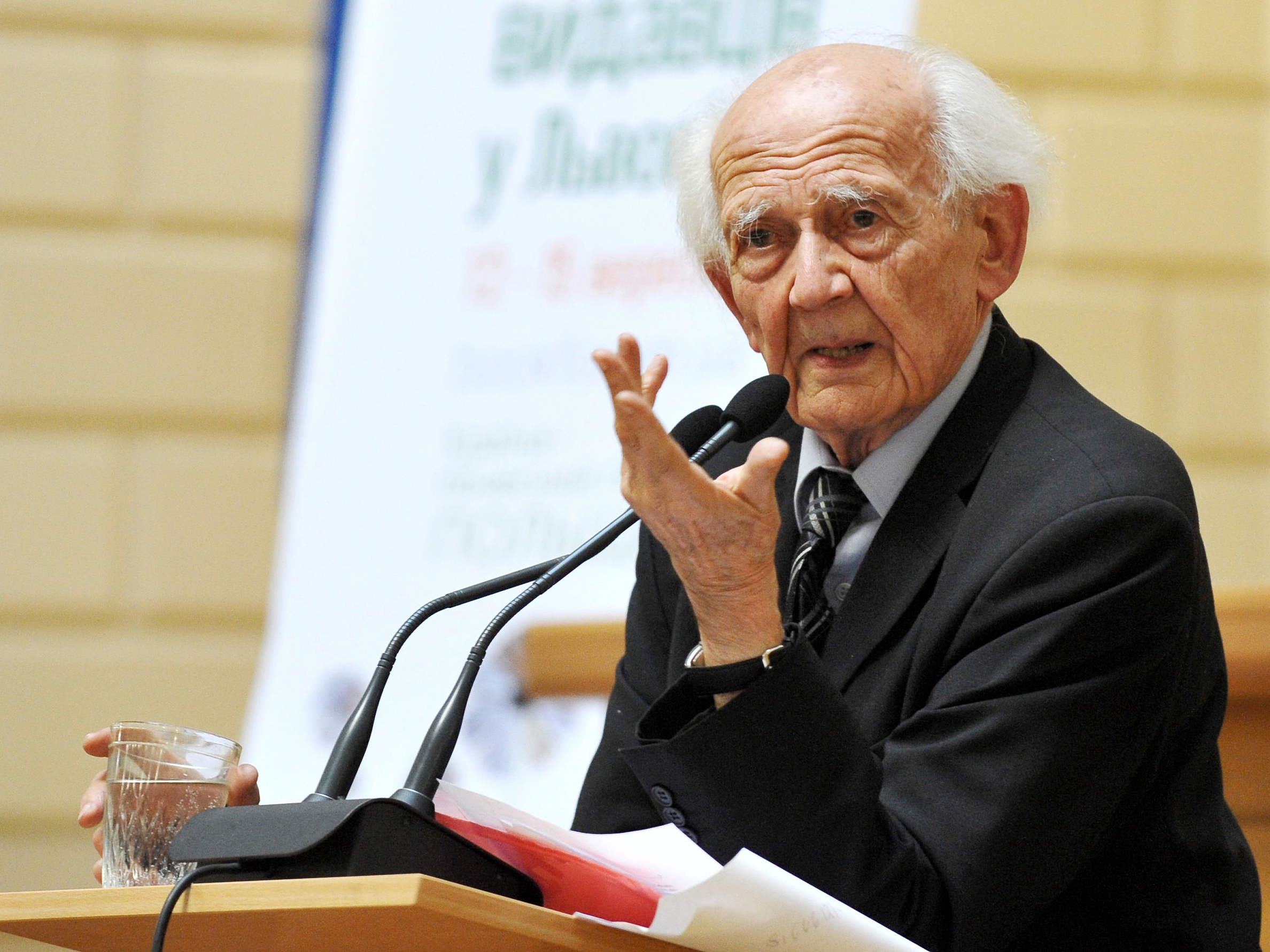“The rationality of the ruled is always the weapon of the rulers.”
Zdroj: Modernity and the Holocaust
Zygmunt Bauman bol poľsko-britský sociológ židovského pôvodu, ktorý žije od roku 1971 v Veľkej Británii. Bol známy pre svoju analýzu súvislostí medzi modernitou a holokaustom a úvahami o podstate postmodernej konzumnej spoločnosti. Wikipedia

“The rationality of the ruled is always the weapon of the rulers.”
Zdroj: Modernity and the Holocaust
[paraphrasing the view of Max Scheler], p. 25.
The Art of Life (2008)
Zdroj: The Art of Life (2008), p. 29.
Zdroj: The Art of Life (2008), p. 79.
Zdroj: The Art of Life (2008), p. 31.
But, inevitably, they will end up longing for the virtues they once possessed but have now abandoned for the sake of getting rid of the agony which practicing them, and taking responsibility for that practice, might have caused.
Zdroj: The Art of Life (2008), p. 37.
[paraphrasing the view of Seneca], p. 34.
The Art of Life (2008)
Zdroj: The Art of Life (2008), p. 35.
“Man is in his short sojourn on earth equal to God in His eternity.”
[paraphrasing the view of Seneca], p. 34.
The Art of Life (2008)
Quoted in Ziggy Stardust https://newhumanist.org.uk/articles/703/ziggy-stardust, 2007
Zdroj: The Art of Life (2008), pp. 24-25 [Quote is from Max Scheler, “Das Ressentiment im Aufbau der Moralen”]
Zdroj: The Art of Life (2008), p. 32.
[paraphrasing the view of Seneca], p. 34.
The Art of Life (2008)